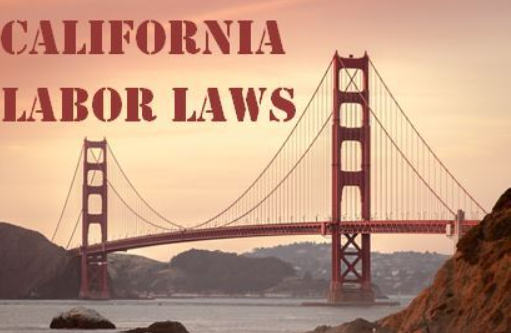Table of Contents
ToggleCalifornia labor laws designed to protect employees’ rights and ensure fair working conditions. These laws cover a wide range of areas including wages, working hours, leave entitlements, workplace safety, and more. This article provides an overview of the key aspects of California labor laws that both employees and employers should be aware of.
Day Off
The #1 tracker for your team’s PTO, vacations and absences, Day Off will help you to Manage PTO and absences in one place. In seconds you will set up your leave policies, approval workflow and enjoy a unique experience.
The “Day Off” app concept revolves around providing users a platform to manage their personal, sick, and vacation days more effectively. features aimed at both individual employees and organizations.
- Employees can track their balances up to date information about their available time off.
- You can add unlimited numbers of employees.
- Supports various leave types (e.g., annual, sick, maternity/paternity leave) and Supports Days and Hours balance, you can add unlimited numbers of leave types and leave policies.
- You can Customize week starting day settings according to your company’s operational days.
- Setting up public holidays specific to your country or region, by importing holidays from Google.
- The app can integrate with ( Slack, Google Calendar, Outlook Calendar and Teams)
- Supports Accruals & Carry overs.
1. Wages and Overtime
California has stringent regulations regarding wages and overtime.
- Minimum Wage: The minimum wage in California is $15.50 per hour for all employers.
- Overtime Pay: Non-exempt employees are entitled to overtime pay at one and a half times their regular rate of pay for hours worked over eight in a workday or 40 in a workweek. Double time must be paid for hours worked over 12 in a workday or over eight on the seventh consecutive day of work in a workweek.
2. Meal and Rest Breaks
Employees in California are entitled to specific meal and rest breaks:
- Meal Breaks: A 30-minute unpaid meal break must be provided for employees working more than five hours in a day. If the workday is over 10 hours, a second meal break must be provided.
- Rest Breaks: Employees are entitled to a 10-minute paid rest break for every four hours worked, or major fraction thereof.
3. Paid Sick Leave
California law mandates that employers provide paid sick leave to their employees:
- Accrual: Employees earn at least one hour of paid sick leave for every 30 hours worked. Employers may also use an alternative method as long as it complies with the minimum requirements.
- Usage: Employees can start using their accrued paid sick leave beginning on the 90th day of employment. They may use up to 24 hours or three days of paid sick leave per year, whichever is greater.
4. Family and Medical Leave
California has several laws that provide family and medical leave rights to employees:
- California Family Rights Act (CFRA): Provides up to 12 weeks of unpaid, job-protected leave for the birth of a child, adoption, foster care placement, or to care for a seriously ill family member or the employee’s own serious health condition.
- Pregnancy Disability Leave (PDL): Entitles employees to up to four months of unpaid leave for disability due to pregnancy, childbirth, or related medical conditions.
- Paid Family Leave (PFL): Provides partial wage replacement benefits for up to eight weeks to employees who take time off to care for a seriously ill family member or bond with a new child.
5. Anti-Discrimination Protections
California labor laws offer robust protections against workplace discrimination:
- Fair Employment and Housing Act (FEHA): Prohibits discrimination based on race, color, national origin, age, marital status, medical condition, and other protected characteristics.
- Discrimination Training: Employers with five or more employees are required to provide discrimination prevention training to all employees
6. Workplace Safety
The California Occupational Safety and Health Act (Cal/OSHA) ensures safe and healthful working conditions:
- Safety Regulations: Employers must comply with numerous safety regulations and standards to prevent workplace injuries and illnesses.
- Reporting and Recordkeeping: Employers are required to maintain records of workplace injuries and illnesses and report serious injuries or fatalities to Cal/OSHA.
7. Wage Theft Protections
California has implemented strong measures to combat wage theft, ensuring that employees are properly compensated for their work:
- Wage Theft Prevention Act: Employers are required to provide written notice to employees at the time of hire, detailing information such as the rate of pay, payday schedule, the employer’s name and address, and any allowances.
- Wage Claims: Employees who believe they have been underpaid can file a wage claim with the California Division of Labor Standards Enforcement (DLSE). The DLSE investigates claims and can order employers to pay back wages and penalties.
- Retaliation Protection: Employees are protected from retaliation for reporting wage theft or filing a wage claim. Retaliatory actions can include termination, demotion, or any adverse changes in employment conditions.
Conclusion
Understanding and complying with California labor laws is crucial for both employees and employers. These laws are designed to ensure fair treatment, safety, and well-being in the workplace. Employees should be aware of their rights and entitlements, while employers must ensure they are meeting their legal obligations to foster a compliant and supportive work environment.
